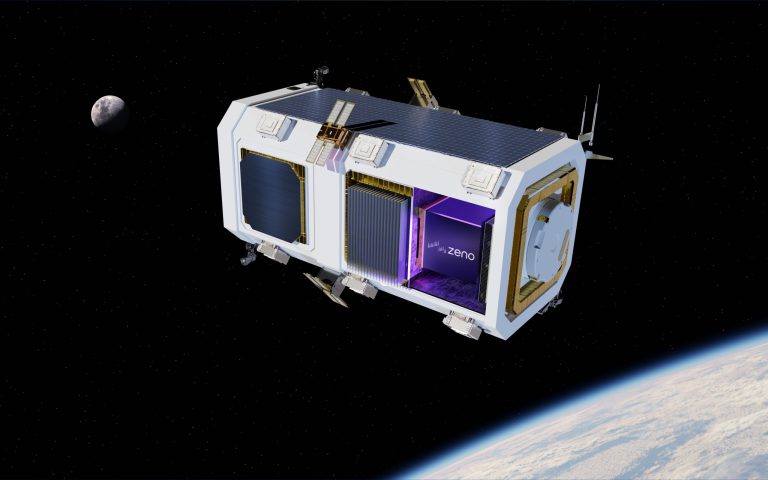WASHINGTON — Zeno Power, a venture-backed startup developing nuclear batteries for extreme environments, said May 14 it raised $50 million in Series B funding to accelerate its work in space and underwater energy systems.
The funding round was led by Hanaco Ventures and joined by space and defense-focused investors including Seraphim, Balerion Space Ventures, JAWS, Vanderbilt University, RiverPark Ventures, Stage 1 Ventures, 7i Capital, Beyond Earth Ventures and others.
The company, headquartered in Seattle and Washington, D.C., said the capital will fund expansion of its workforce and manufacturing footprint as it aims to deliver its first commercial nuclear battery by 2027.
Zeno’s flagship product, a radioisotope power system — known in the aerospace and defense sectors as an RPS — converts the heat from radioactive decay into usable electricity. The technology has long been used by NASA in deep space missions. Zeno is among a handful of private companies now racing to modernize and scale the approach for broader deployment, including military and commercial use cases.
“With great power competition rising, the ocean floor, Arctic, and lunar surface are becoming the front lines of global security and economic progress — but they remain energy deserts,” said Tyler Bernstein, Zeno’s chief executive and co-founder. “With this round of funding, we’re on track to demonstrate full-scale systems in 2026 and deliver the first commercially built nuclear batteries to power frontier environments by 2027.”
Zeno’s devices are being developed to power unmanned systems where solar, chemical, or combustion-based energy sources fall short — such as in deep oceans, the Arctic winter, or the Moon’s two-week-long night.
The company says it has secured over $60 million in government contracts from the Department of Defense and NASA, supporting prototypes for highly maneuverable satellites, seabed infrastructure, and lunar landers. One current project involves a nuclear-powered satellite backed by the U.S. Air Force, which Zeno plans to demonstrate in 2026.
The new round builds on a $20 million Series A in 2022 led by Tribe Capital. Bernstein said Zeno aims to grow its team to more than 100 employees across its two locations and invest in production capacity.
As it scales up, Zeno is adding military leadership to its board. The company announced that retired U.S. Navy Admiral John Richardson, who oversaw the Navy’s nuclear fleet during his tenure as chief of naval operations, has joined its board of directors.
“I’m proud to join Zeno Power at a strategic moment for nuclear innovation,” Richardson said. “Zeno’s nuclear batteries provide safe, reliable, and long-lasting power from the seabed to space, where traditional energy sources can’t reach.”
Over the past three years, Zeno has made key technical strides, unveiling its first nuclear prototype at Pacific Northwest National Laboratory and securing Strontium-90 fuel from the U.S. Department of Energy. It also partnered with Westinghouse Electric to produce the radioisotope heat sources required to power its systems.
In the commercial space sector, Zeno is collaborating with lunar robotics company iSpace-U.S. to develop nuclear-powered systems that can survive the extreme cold of the lunar night. A technology demonstration is planned for as early as 2027.
“Nuclear energy is having a renaissance, and Zeno is at the forefront of bringing it to places no other energy can reliably go,” said Lior Prosor, partner at Hanaco Ventures. “Zeno’s nuclear batteries will have an immediate impact in defense and space, and long-term potential to transform how energy is delivered in remote and distributed environments.”
What are Radioisotope Power Systems?
Radioisotope power systems generate electricity by converting heat from the decay of radioactive isotopes — typically Strontium-90 or Plutonium-238 — into electrical power via thermoelectric generators. Used by NASA since the 1960s, RPS have powered missions like Voyager, Cassini, and the Mars Curiosity rover. Unlike reactors, they produce no chain reaction, have no moving parts, and are considered inherently safe and maintenance-free for long-duration missions.
Zeno executives predict that with modern materials, automated manufacturing and commercial partnerships, RPS can go from a niche government tool to an enabler of off-grid power for an age of geopolitical competition and lunar commerce.

